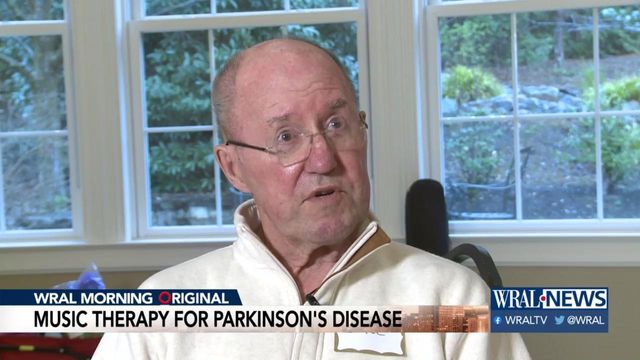Music therapy helps Parkinson's patients reconnect mind with muscles
Certified music therapist Rachel Shell with First Health Moore Regional uses music to address speech, movement and recall for individuals with Parkinson's Disease.
Posted — UpdatedWith the help of a certified music therapist, pairing rhythms with exercise can help patients regain some movement and possibly slow down the progression of the disease, experts said.
"Music therapy is using music to reach non-musical goals," said Shell. "And in here, with Parkinson's, it's working toward movement, speech or coordination or working through some of that rigidity."
Parkinson's Disease affects the central nervous system, and more than 200,000 people are diagnosed in the U.S. every year. There is no cure, but medications and different types of physical therapy can help.
Parkinson's patient Bruce Robson believes the music mixed with exercise really works. "You can see some progress," he said. "What I'm trying to do is stop the progress (of the disease)."
The rhythm and the beat combined with movement are the key, Shell said, "because we have a strong beat that we can anticipate and that can help us initiate movements."
Most of the patients in the music therapy class at First Health are in their seventies and eighties. While music from Frank Sinatra may be more familiar to them than songs like "Roxanne" by The Police, each piece of music has a purpose.
"Roxanne" is said 23 times in the song by the same name, and it's a cue for Parkinson's patients to lift up their legs from a seated position. It's exercise and it's fun.
"There are really things happening inside our body and inside of our brains when we're engaging in music," said Shell.
"It helps with your ability to mingle with people...and it helps with stamina," he said.
Shell said the benefits may be difficult to quantify, but they're positive.
"My philosophy is, at the end of the day, I hope that people are having fun and enjoying the music," she said.
Related Topics
• Credits
Copyright 2024 by Capitol Broadcasting Company. All rights reserved. This material may not be published, broadcast, rewritten or redistributed.






